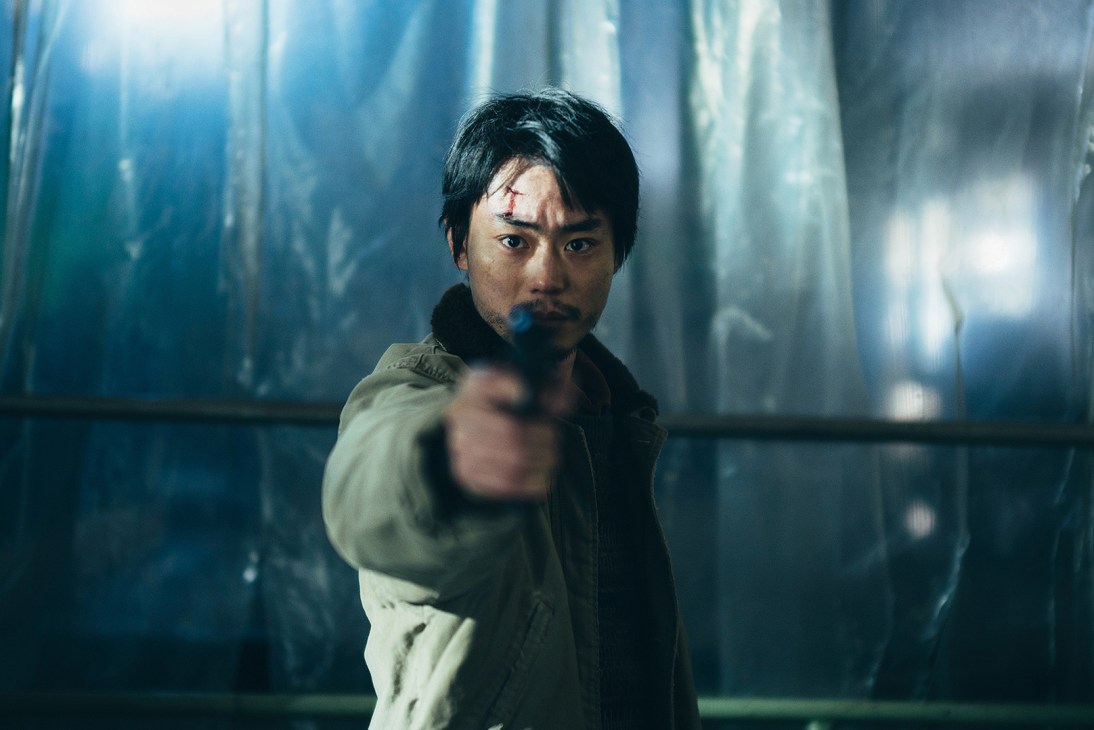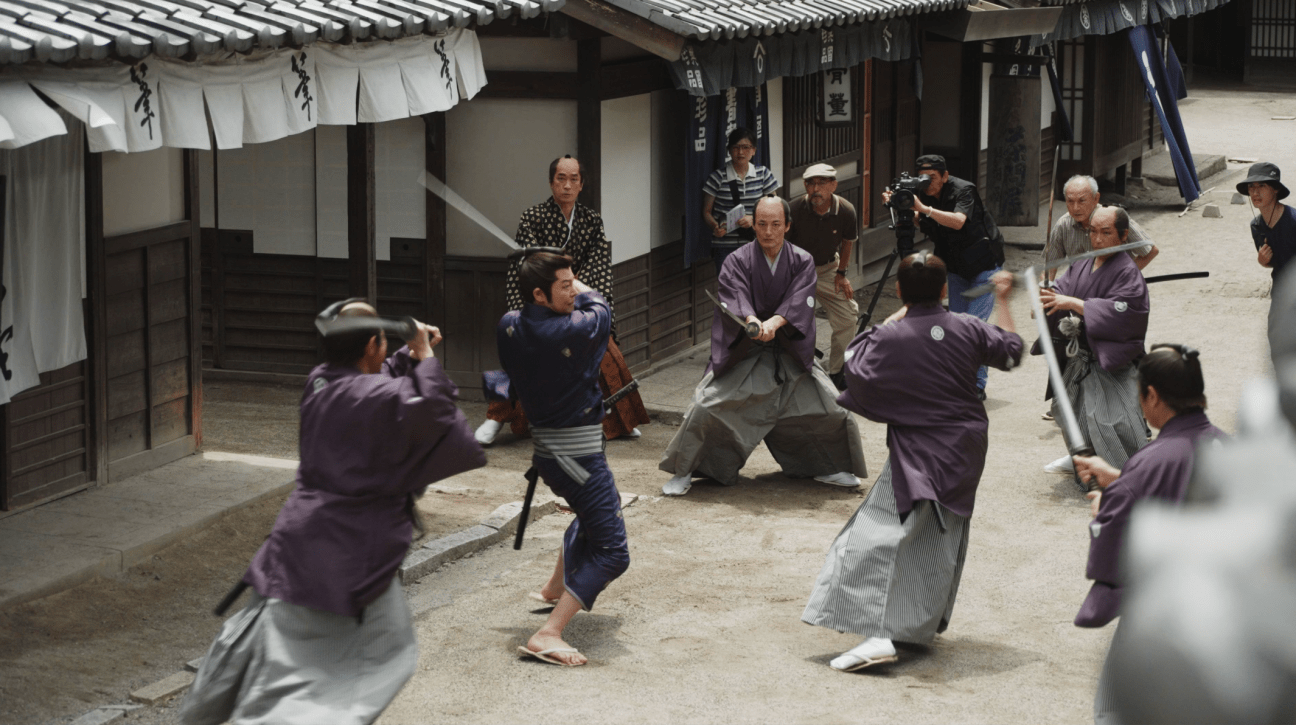The film festival toasting Japan’s cinematic renaissance in the Big Apple
As Japan Cuts returns for its 18th edition, director of film Peter Tatara speaks to Monocle about Kiyoshi Kurosawa’s enduring legacy and why ‘shochu’ is the toast of Manhattan this summer.
Japan Cuts, North America’s largest festival of contemporary Japanese cinema, kicked off on 10 July at Japan Society in Manhattan. With screenings of 30 films over 11 days, the festival – now in its 18th year – includes premieres, documentaries and restored classics. There will also be a special award for the director and screenwriter Kiyoshi Kurosawa, and a closing reception with traditionally distilled shochu imported for the occasion. Japan Society was founded as a non-profit organisation in 1907 and is today housed in a 1971 building designed by the much-admired architect Junzo Yoshimura. Monocle spoke to Japan Society’s director of film, Peter Tatara.

What is the festival’s theme, and how do you make your selection?
Japan Cuts is dedicated to showcasing contemporary Japanese cinema. Each year, the festival offers New York audiences a snapshot of works produced in Japan over the past 12 months – from major blockbusters, indie flicks and documentaries to shorts and experimental works. This year, we’re proud to celebrate the acclaimed director Kiyoshi Kurosawa. He will receive the Cut Above Award, which recognises his lifetime achievements, and we will be hosting the New York premiere of his new release, Cloud, as well as a screening of his recent remake of Serpent’s Path. The selection process takes approximately six months, beginning at the Tokyo International Film Festival, where we spend about 10 days meeting with Japanese film-makers and distributors. To arrive at our final list of 30 films, the team reviews more than 300 works and engages in discussions before deciding on the final selection.
What are some of the highlights?
We are thrilled to welcome Yuumi Kawai, who recently won the best actress award at this year’s Japan Academy Film Prize for her performance in A Girl Named Ann. We’ll be hosting its North American premiere, along with a screening of She Taught Me Serendipity. Further highlights include the first New York screening of A Samurai in Time, which won best film at the Japan Academy Film Prize, and Teki Cometh, which took home the grand prix for best film, as well as awards for best director and best actor at the Tokyo International Film Festival. We’re also excited to spotlight some smaller projects, and our Next Generation section will showcase works from emerging independent directors.

Tell us more about the award to Kiyoshi Kurosawa.
Every year we present a Cut Above Award, which is given to a director or actor in celebration of their contributions to cinema. Previous winners include Yuya Yagira, Joe Odagiri, Kirin Kiki, Koji Yakusho, Shinya Tsukamoto, Sakura Ando and Lily Franky. This year, we’re honoured to present it to Mr Kurosawa, recognising both his works as well as his lifelong commitment to film-making.
And restored classics too?
Every year Japan Cuts features a small selection of classic cinema, focusing on new restorations or anniversaries. With Mr Kurosawa in attendance, we’ll be showing a remastered edition of the original Serpent’s Path from 1998, and a 35mm screening of his License to Live. We’ll also be celebrating the 30th anniversary of Shunji Iwai’s feature debut, Love Letter, with the North American premiere of its 4K restoration.
The closing film sounds interesting – give us a synopsis. Can the audience expect a glass of ‘shochu’?
This is one of my favourite films of the festival. We’re closing this year’s edition with the international premiere of The Spirit of Japan. It’s a beautiful documentary about the Yamatozakura distillery in Kagoshima prefecture – one of the last handmade sweet-potato shochu distilleries in Japan. The film follows fifth-generation master brewer Tekkan Wakamatsu as he carries on 175-year-old traditions passed down by his father, Kazunari Wakamatsu. The documentary gives you a behind-the-scenes look at the shochu-making process, but it offers more than that. It’s a deeply moving portrait of a father and son and an observation of vanishing traditions. We’re honoured to share this film and excited to have director Joseph Overbey and producer Stephen Lyman – and even Tekkan Wakamatsu himself – in attendance for a Q&A. After the screening, the audience can enjoy a reception with Yamatozakura shochu, imported just for this event.
Tell us how you became interested in Japanese cinema. Any favourite films and directors?
I’ve had an interest since I was a child. I grew up in a small town and finding Japanese films on VHS was a window to another world. It made me want to learn more about the culture, the food, the language and eventually inspired me to travel to Japan – cinema is a powerful ambassador to the world. I am drawn to directors such as Kurosawa and Ozu, as well as Fukasaku. Fumihiko Sori’s Ping Pong is also one of my absolute favourites.
Which features would you recommend for novice Japanese film watchers?
If this is your first time attending Japan Cuts, beyond the major titles, I would recommend My Sunshine, a beautiful piece about teenage adolescence; the comedy Kaiju Guy!; the outlandish The Gesuidouz; and So Beautiful, Wonderful and Lovely, featured in this year’s Next Generation section. Together, they give a comprehensive introduction to Japanese cinema.
Japan Cuts runs until 20 July, at Japan Society 333 E 47th Street, New York.



